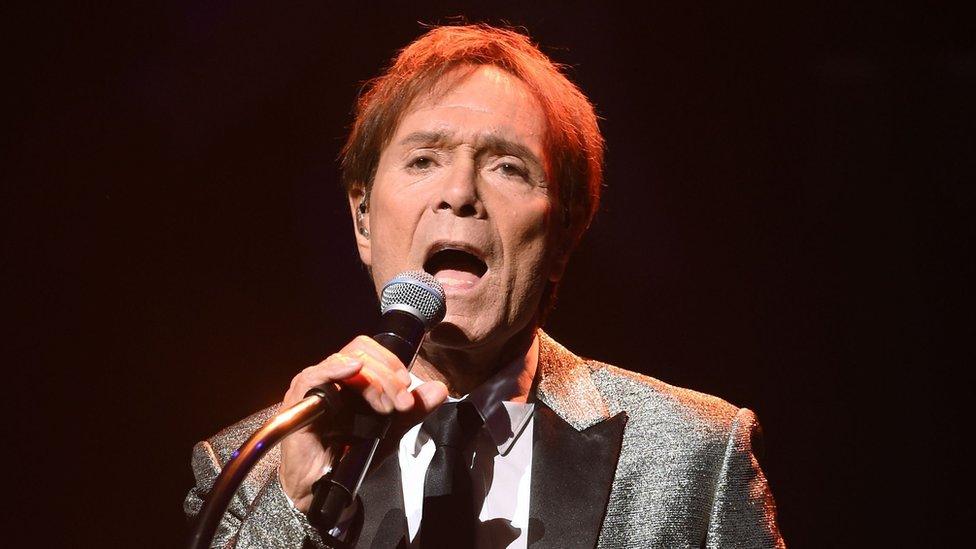BBC 'very sorry' Sir Cliff 'suffered distress'
- Published
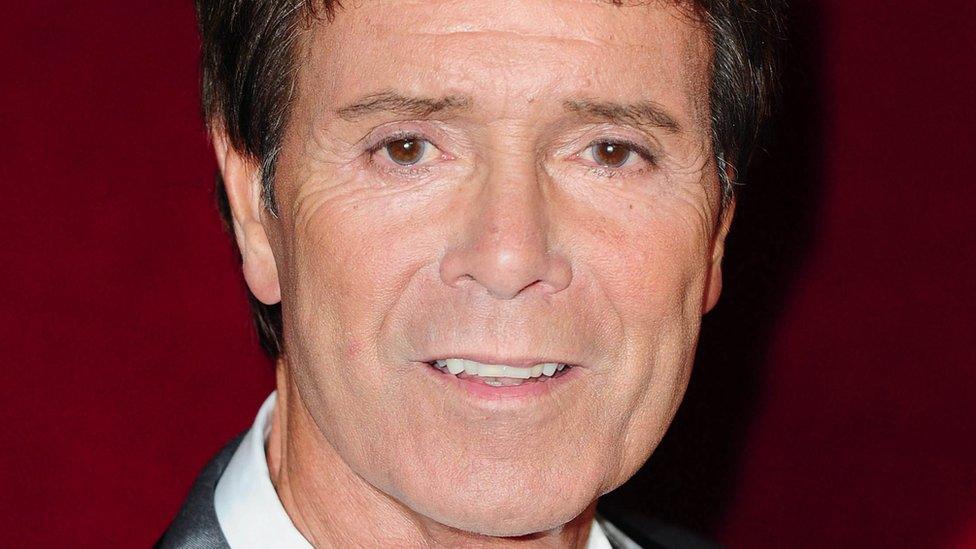
Sir Cliff has said the two-year investigation affected his health
The BBC has said it is "very sorry" Sir Cliff Richard "suffered distress" after its coverage of the 2014 police raid on his home, over historical allegations of sex abuse.
The corporation said it "reported Sir Cliff's full denial of the allegations... at every stage".
It said it "stands by the decision to report the investigation... and the search of his property".
Last week prosecutors said the singer would face no charges.
Sir Cliff told Tuesday's Daily Mail, external he is considering suing the BBC.
The singer said in the interview that the BBC "have a lot to answer for" for broadcasting the raid live on TV.
"Somebody has to teach them a lesson and if it's done by suing, let's do it," he said.
"And the same with South Yorkshire Police. They have damaged me in a great way," he added.

BBC statement in full
"The BBC is very sorry that Sir Cliff Richard, who has worked as a musician and performer for so many years with the organisation, has suffered distress.
The BBC's responsibility is to report fully stories that are in the public interest.
Police investigations into prominent figures in public life are, of course, squarely in the public interest, which is why they have been reported by all news organisations in this country.
Once the South Yorkshire Police had confirmed the investigation and Sir Cliff Richard's identity and informed the BBC of the timing and details of the search of his property, it would neither have been editorially responsible nor in the public interest to choose not to report fully the investigation into Sir Cliff Richard because of his public profile.
The BBC, at every stage, reported Sir Cliff's full denial of the allegations.
The BBC, therefore, stands by the decision to report the investigation undertaken by the South Yorkshire Police and the search of his property.
Sir Cliff has made the argument that the identity of people under investigation into historic allegations should not be made public until they are charged.
This view raises significant questions about the scrutiny of the police and public confidence that allegations are investigated.
That said, we respect the fact that he is making an important statement in the debate over balancing privacy rights with the public interest.
Ultimately, though, deciding whether people should remain anonymous while the subject of a police investigation is a matter for Parliament.
The Home Affairs Select Committee reviewed the editorial decisions made by the BBC and concluded 'we see nothing wrong in their decision to run the story'."

The raid was part of an investigation into claims made by four men who alleged offences took place between 1958 and 1983.
The Crown Prosecution Service said it had decided there was "insufficient evidence to prosecute".
Sir Cliff said he was "obviously thrilled that the vile accusations and the resulting investigation have finally been brought to a close".
BBC cameras and a reporter were outside the gates to Sir Cliff's property in Sunningdale, Berkshire when police officers arrived to search his home in August 2014.
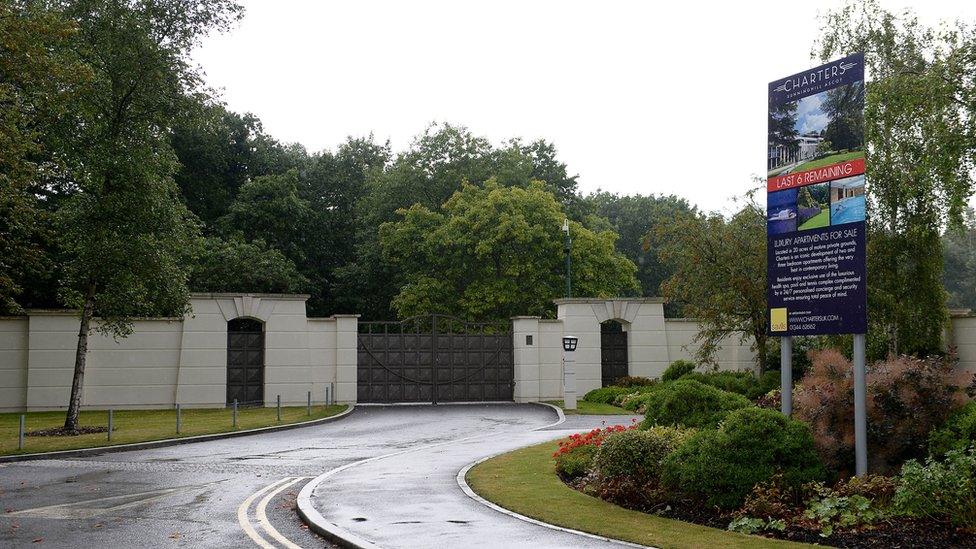
Sir Cliff Richard's home on a gated development in Berkshire was raided by police in 2014
A cameraman in a helicopter also filmed it.
In his first interview since the investigation ended, Sir Cliff said the BBC's filming of the raid was an "unforgiveable" invasion into his privacy.
"They must be thinking I will sue them. Once, I would have been reluctant. It's tempting to forget the whole thing, but people like myself are in a very privileged position to possibly change things so it doesn't happen to anyone else," he told The Mail.
Police apology
Last year, an independent investigation concluded that South Yorkshire Police should not have released "highly confidential" information to the BBC about a planned search of Sir Cliff Richard's home.
In a statement, South Yorkshire Police apologised "wholeheartedly for the additional anxiety caused" to Sir Cliff by the force's "initial handling of the media interest" in its investigation.
"The police have apologised, but the BBC hasn't, and it owes me that," Sir Cliff told the newspaper.
"What it did to me was shameful. No one should have to go through what I did.
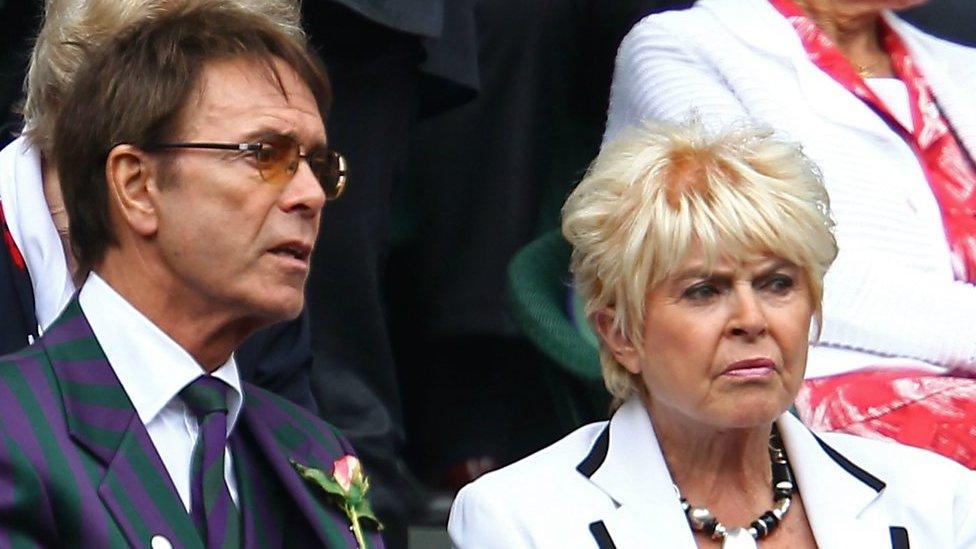
Gloria Hunniford has spoken of Sir Cliff's distress
"My name was plastered everywhere before I was even questioned. When they broke into the apartment, I had no idea why. None at all. Later, they [the BBC] even boasted that the raid on my home was the news scoop of the year."
But Sir Cliff said he does not want "heads to roll" or "revenge".
"I want to be able to say: 'The BBC should never have done this'," he said.
Sir Cliff's friend of 45 years, broadcaster Gloria Hunniford, told BBC Radio 5 live's Nicky Campbell he has "never really been back" to the apartment.
She said he has been affected both mentally and physically by the two-year investigation.
Sir Cliff found that "when he started playing tennis again, which he loves and that's his way of keeping fit, all the strength had gone from his body completely".
Hunniford encouraged him to "live his life and be joyous" now the investigation is over, but said he still feels "angry with (South) Yorkshire Police and the BBC".
- Published16 June 2016
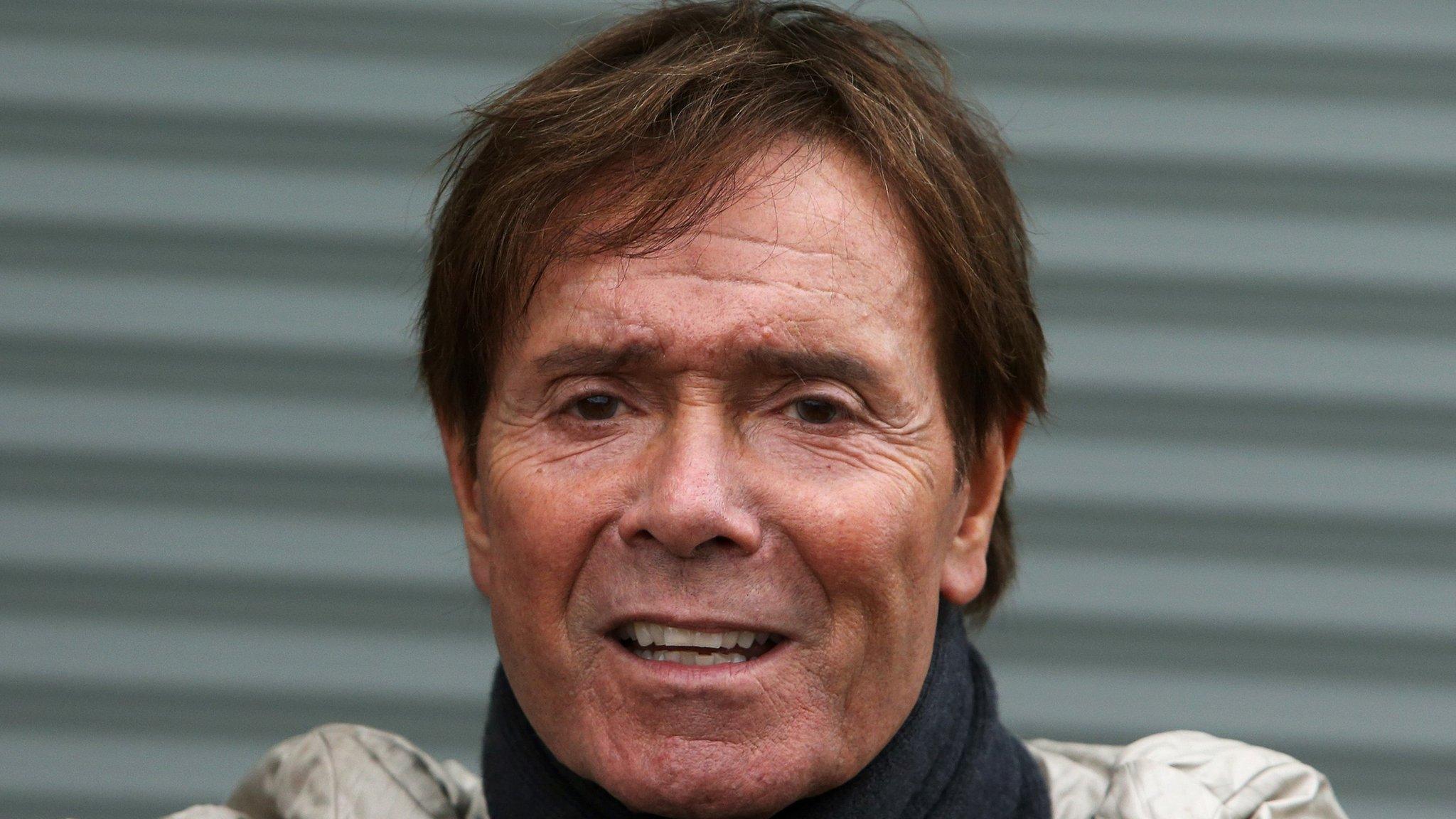
- Published16 June 2016
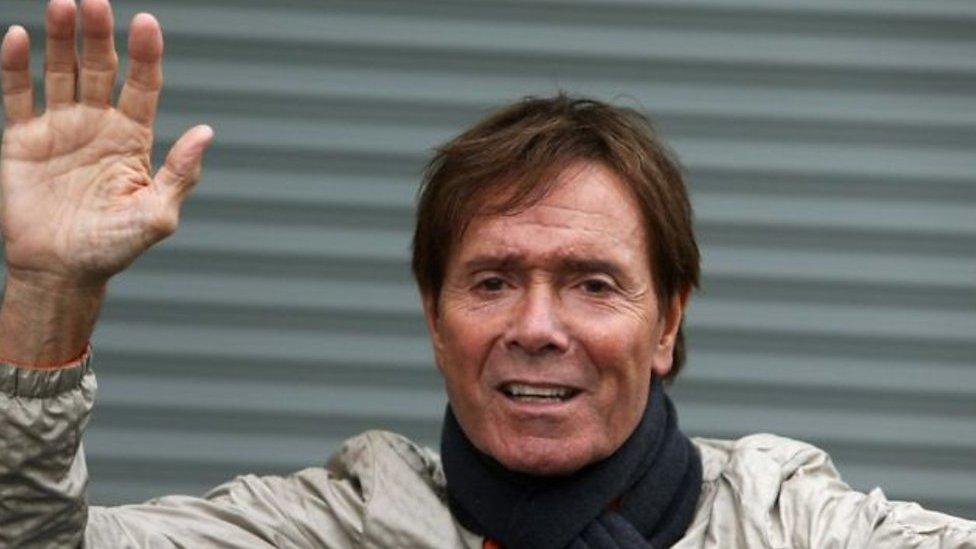
- Published16 June 2016
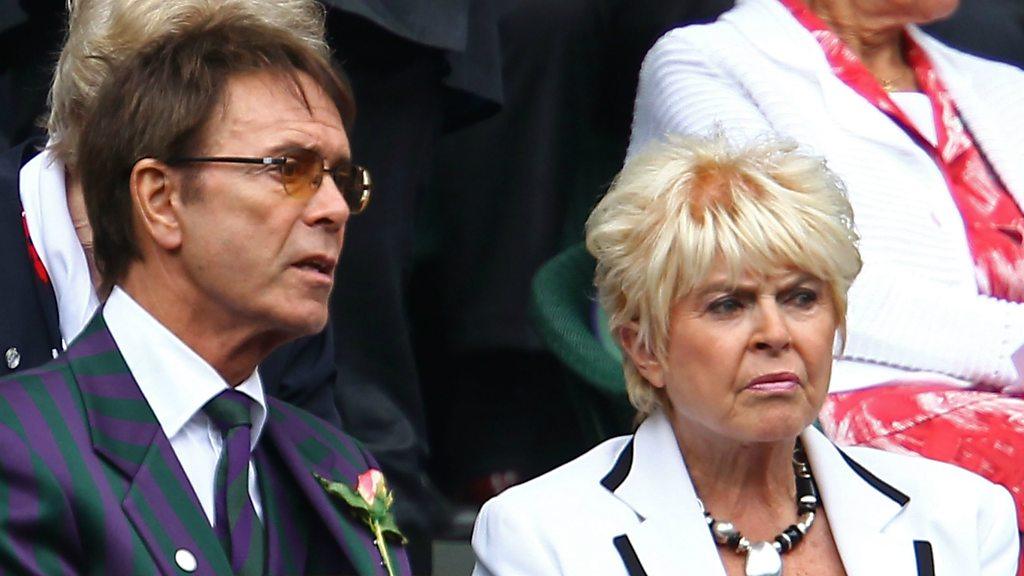
- Published16 June 2016
